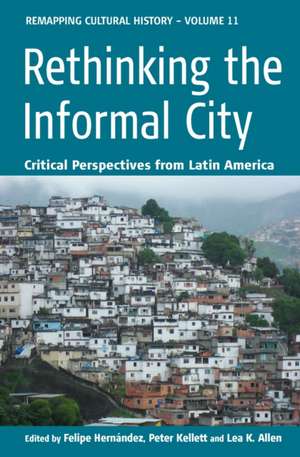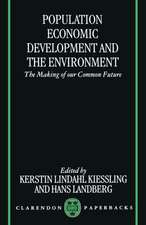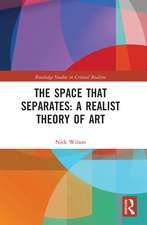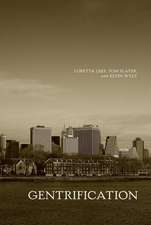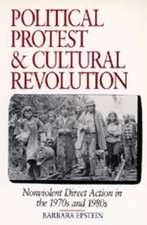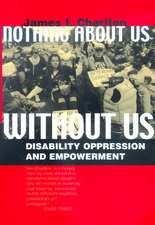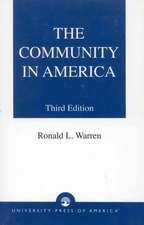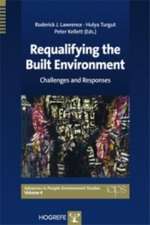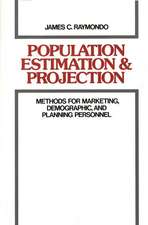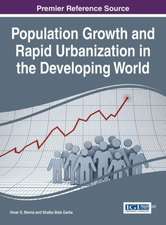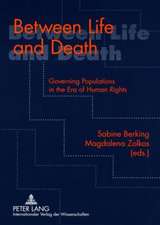Rethinking the Informal City: Critical Perspectives from Latin America: Remapping Cultural History, cartea 11
Editat de Peter Kellett, Lea Knudsen Allenen Limba Engleză Hardback – 30 noi 2009
Din seria Remapping Cultural History
-
 Preț: 257.69 lei
Preț: 257.69 lei - 23%
 Preț: 806.68 lei
Preț: 806.68 lei -
 Preț: 257.89 lei
Preț: 257.89 lei -
 Preț: 260.19 lei
Preț: 260.19 lei - 23%
 Preț: 834.42 lei
Preț: 834.42 lei - 23%
 Preț: 835.02 lei
Preț: 835.02 lei -
 Preț: 300.62 lei
Preț: 300.62 lei -
 Preț: 260.02 lei
Preț: 260.02 lei - 23%
 Preț: 747.55 lei
Preț: 747.55 lei -
 Preț: 262.70 lei
Preț: 262.70 lei - 23%
 Preț: 749.61 lei
Preț: 749.61 lei -
 Preț: 262.14 lei
Preț: 262.14 lei - 23%
 Preț: 752.88 lei
Preț: 752.88 lei -
 Preț: 257.89 lei
Preț: 257.89 lei - 23%
 Preț: 751.54 lei
Preț: 751.54 lei -
 Preț: 261.18 lei
Preț: 261.18 lei - 23%
 Preț: 750.37 lei
Preț: 750.37 lei -
 Preț: 260.96 lei
Preț: 260.96 lei - 23%
 Preț: 836.36 lei
Preț: 836.36 lei
Preț: 749.77 lei
Preț vechi: 973.74 lei
-23% Nou
Puncte Express: 1125
Preț estimativ în valută:
143.47€ • 150.17$ • 119.41£
143.47€ • 150.17$ • 119.41£
Carte tipărită la comandă
Livrare economică 31 martie-14 aprilie
Preluare comenzi: 021 569.72.76
Specificații
ISBN-13: 9781845455828
ISBN-10: 1845455827
Pagini: 264
Dimensiuni: 159 x 22 x 237 mm
Greutate: 0.52 kg
Editura: BERGHAHN BOOKS INC
Seria Remapping Cultural History
Locul publicării:United Kingdom
ISBN-10: 1845455827
Pagini: 264
Dimensiuni: 159 x 22 x 237 mm
Greutate: 0.52 kg
Editura: BERGHAHN BOOKS INC
Seria Remapping Cultural History
Locul publicării:United Kingdom
Notă biografică
Felipe Hernandez is an Architect and lecturer in architectural design, history and theory at the University of Cambridge. He has an MA in Architecture and Critical Theory and received his PhD from the University of Nottingham. He taught previously in the School of Architecture at the University of Liverpool, and has also taught at the Bartlett School of Architecture (UCL), the Universities of Nottingham, East London and Nottingham Trent. Felipe Hernandez has published extensively on contemporary Latin American cities, focusing on the multiplicity of architectural practices that operate simultaneously in the constant re-shaping of the continent's cities. He is the author of Beyond Modernist Masters: Contemporary Architecture in Latin America (Birkhauser 2009) and Bhabha for Architects (Routledge 2009) and co-editor of Transculturation: Cities, Space and Architecture in Latin America (Rodopi 2005). Peter Kellett is senior lecturer in the School of Architecture, Planning and Landscape at the University of Newcastle upon Tyne. He is a qualified architect with an M.A. in Social Anthropology and has worked and researched in Latin America for many years. His Ph.D. is an ethnographic study of informal housing processes in northern Colombia, and his research continues to focus largely on housing, particularly on understanding how disadvantaged households create, use and value dwelling environments in cities in the developing world. He has lectured and published widely, and in addition to his work in Latin America he has worked on large comparative research projects in Asia and Africa, as well as in the U.K. Lea Knudsen Allen completed her Ph.D. in the Department of English Literatures and Cultures at Brown University. She has worked extensively on issues to do with postcolonial discourse, transmigration and cultural representation. Her doctoral thesis, entitled 'Cosmopolite Subjectivities and the Mediterranean in Early Modern England', explored these topics in the context of early modern English drama, poetry and travel literature. She has published on exoticism and international trade in the work of Jonson and Marlowe. Additionally, Allen has an interest in representations of urban and social space, a topic on which she has also published. Currently Lea lives in the United Kingdom and teaches for the Universities of Maine (USA) and Liverpool (UK).
Cuprins
List of Figures Acknowledgements Foreword Rahul Mehrotra Chapter 1. Introduction: Reimagining the Informal in Latin America Felipe Hernandez and Peter Kellett PART ONE: CRITICAL PERSPECTIVES Chapter 2. The Form of the Informal: Investigating Brazilian Self-Built Housing Solutions Fernando Luiz Lara Chapter 3. Informal Practices in the Formal City: Housing, Disagreement and Recognition in Downtown Sao Paulo Zeuler R. Lima and Vera M. Pallamin Chapter 4. The Formal Architecture of Brasilia: An Analysis of the Contemporary Urban Role of its Satellite Settlements Annalisa Spencer Chapter 5. The Evolution of Informal Settlements in Chile: Improving Housing Condition in Cities Paola Jiron Chapter 6. Housing for the Poor in the City Centre: A Review of the Chilean Experience and a Challenge for Incremental Design Margarita Greene and Eduardo Rojas PART TWO: CRITICAL PRACTICES Chapter 7. Rules of Engagement: Caracas and the Informal City Alfredo Brillembourg and Hubert Klumpner Chapter 8. Integrated Informality in the Barrios of Havana Ronaldo Ramirez Chapter 9. Formal-Informal Connections in the Favelas of Rio de Janeiro: The Favela-Bairro Programme Roberto Segre Chapter 10. Spatial Strategies and Urban Social Policy: Urbanism and Poverty Reduction in the Favelas of Rio de Janeiro Jorge Fiori and Zeca Brandao Chapter 11. Urban and Social Articulation: Megacities, Exclusion and Urbanity Jorge Mario Jauregui Chapter 12. Public-city in Manifesto: The Formal City In-formed by Public Interest Claudio Vekstein Notes on Contributors Index
